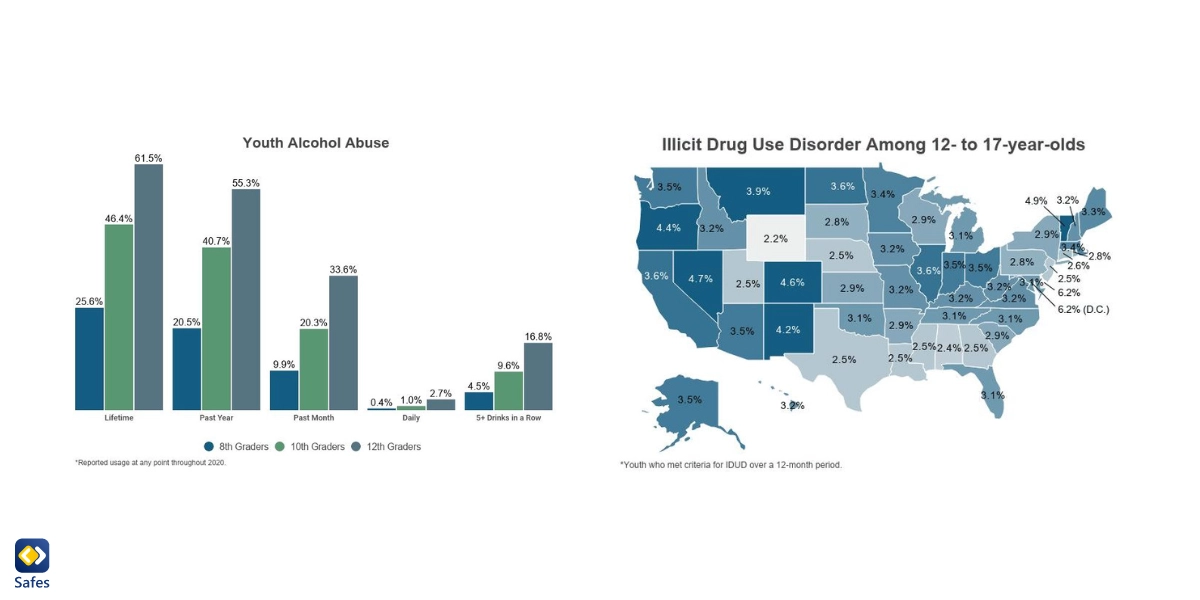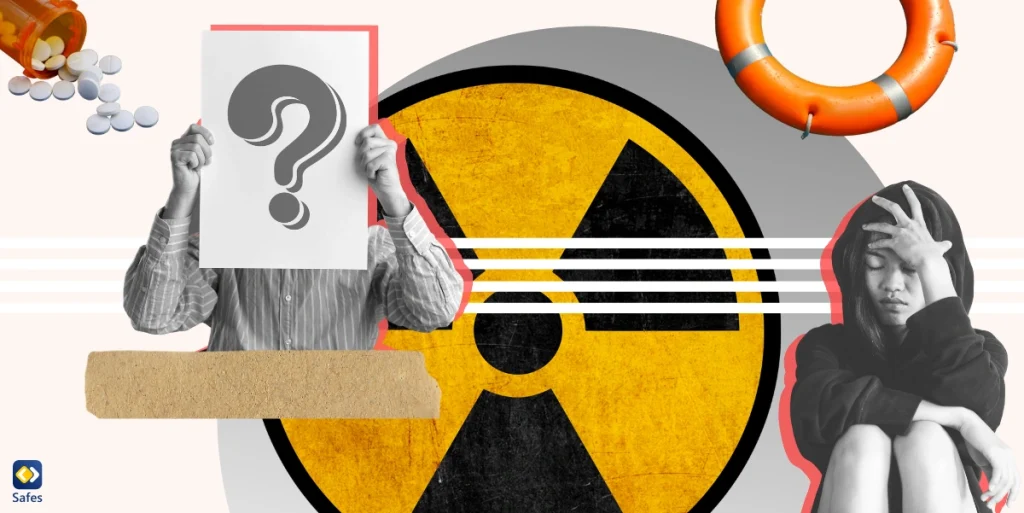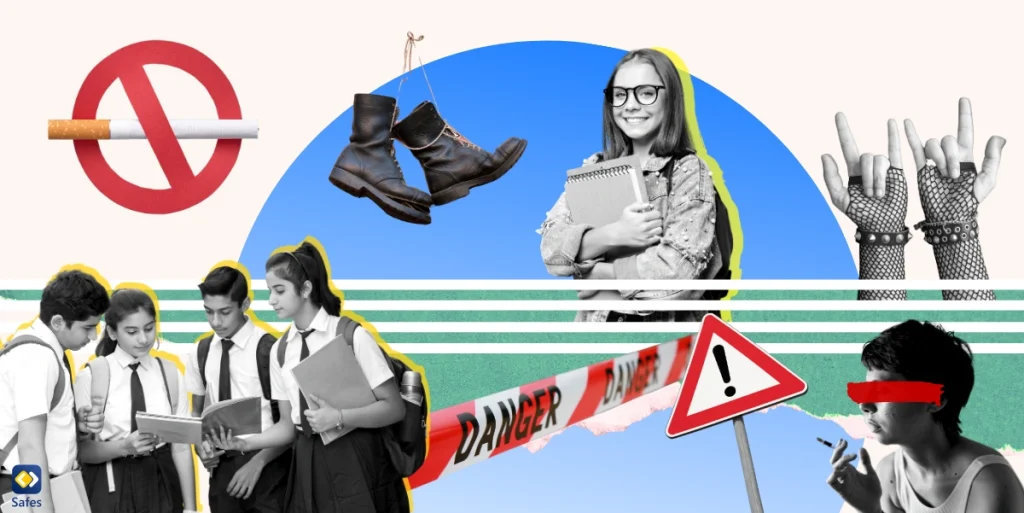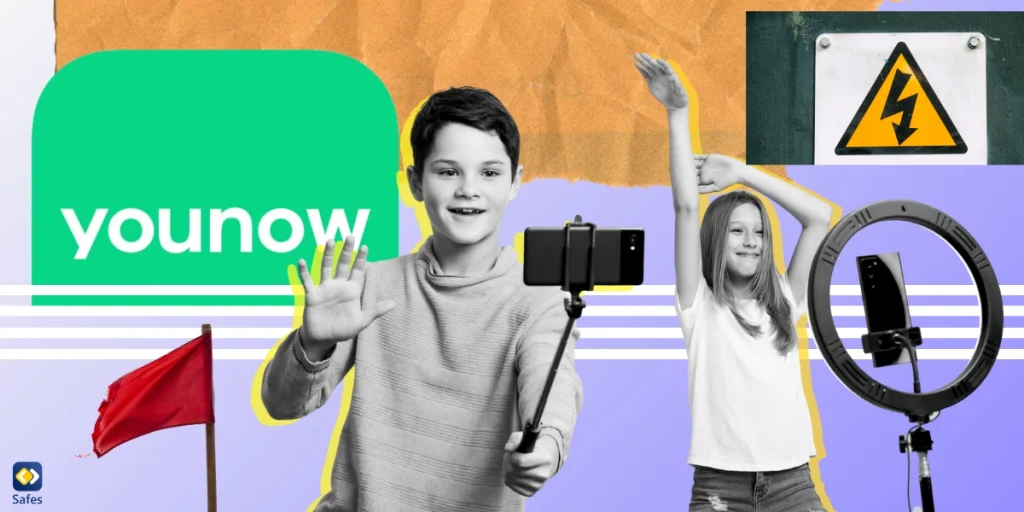Social media has facilitated the way we communicate. But not all of its changes are positive. One of the most alarming impacts is the potential to influence teenage substance abuse. Teenagers who spend extended time on social media are at a higher risk of developing issues with drugs and alcohol (source). We’ll discuss these effects in detail and then offer solutions and tools you can use to minimize the harmful impact of social media on your child.
The Influence of Digital Culture on Teenagers
Many teenagers are active users of social media platforms like Facebook, Instagram, Twitter, and TikTok, spending an average of eight hours a day online. Continuous exposure to harmful content, including that which portrays drug and alcohol use positively, can potentially influence a teenager’s behavior and attitudes toward substance use.
Related Articles:
- How Does Social Media Affect Kids?
- Negative Effects of Social Media on Physical Health
- Solutions to Reduce the Negative Impact of Social Media on Youth
Teenage Substance Abuse: A Hidden Epidemic
Teenage substance abuse is a growing concern worldwide. Though it is often hidden from view, it is steadily turning into an epidemic. The widespread and easy access to the internet and social media platforms have exacerbated the situation, making teenagers more susceptible to influences that can lead to drug and alcohol use.
Teenage Substance Abuse Statistics
The statistics related to teenage substance abuse are alarming. 62% of American teenagers in the 12th grade have abused alcohol, and 50% have misused a drug at least once (The National Center for Drug Abuse Statistics).

Most drug and alcohol use content on social media is depicted positively. The more exposure teenagers have to such content, the more likely they are to use and develop issues with alcohol, tobacco, and cannabis.
How Social Media Fuels Drug Abuse in Youth
Social media platforms are flooded with user-generated content that often depicts substance use positively. Only around 21% of posts are from public health and educational organizations sharing information on the harmful effects of substance use. This imbalance is likely to influence teenage viewers’ behavior and possibly lead to substance abuse.
Many teenagers, influenced by what they see on social media, start to believe that using substances is a normal part of life, leading them down a dangerous path.
The Warning Signs of Drug Abuse in Teens
Recognizing the warning signs of drug abuse in teenagers is crucial. Look out for these indicators of potential substance abuse in your child:
- Changes in behavior
- Withdrawal from family and friends
- A sudden decline in academic performance
- An increased interest in parties and gatherings
How Can Parents Intervene?
You play a crucial role in preventing your teen from substance abuse. Open communication and active monitoring of social media use can go a long way in mitigating the risks. You should inspire your teenager to participate in critical discussions about the content they encounter on social media. You can also use digital tools such as parental control apps to monitor your child’s social media use.
The Role of Parental Control Apps
Parental control apps like Safes can be handy tools in monitoring your child’s social media use, filtering out harmful content, and receiving alerts when your child encounters potentially harmful content related to substance use. Using Safes, you can block harmful apps and websites that share content promoting substance use. You can also filter out all drug-related keywords from your child’s search queries. And with Safes’s app monitoring feature, you can get notified if your child has come across inappropriate content or messages before it turns into a problem.
You can download Safes from our website, Google Play, and App Store. Learn how to set parental controls on different devices and platforms with Safes using the links below:
- Windows parental controls
- Macbook parental controls
- Parental controls on Android
- iPhone parental controls
Conclusion: Teenage Substance Abuse
The influence of social media on teenage substance abuse cannot be underestimated. It is a concerning issue that calls for immediate action. With tools like parental control apps, constant monitoring, and open dialogue, you can protect your teenager from falling prey to the dangers of substance abuse.
Additional Resources
Find more information about teenage substance abuse and how to help them avoid drugs and alcohol in these resources:




